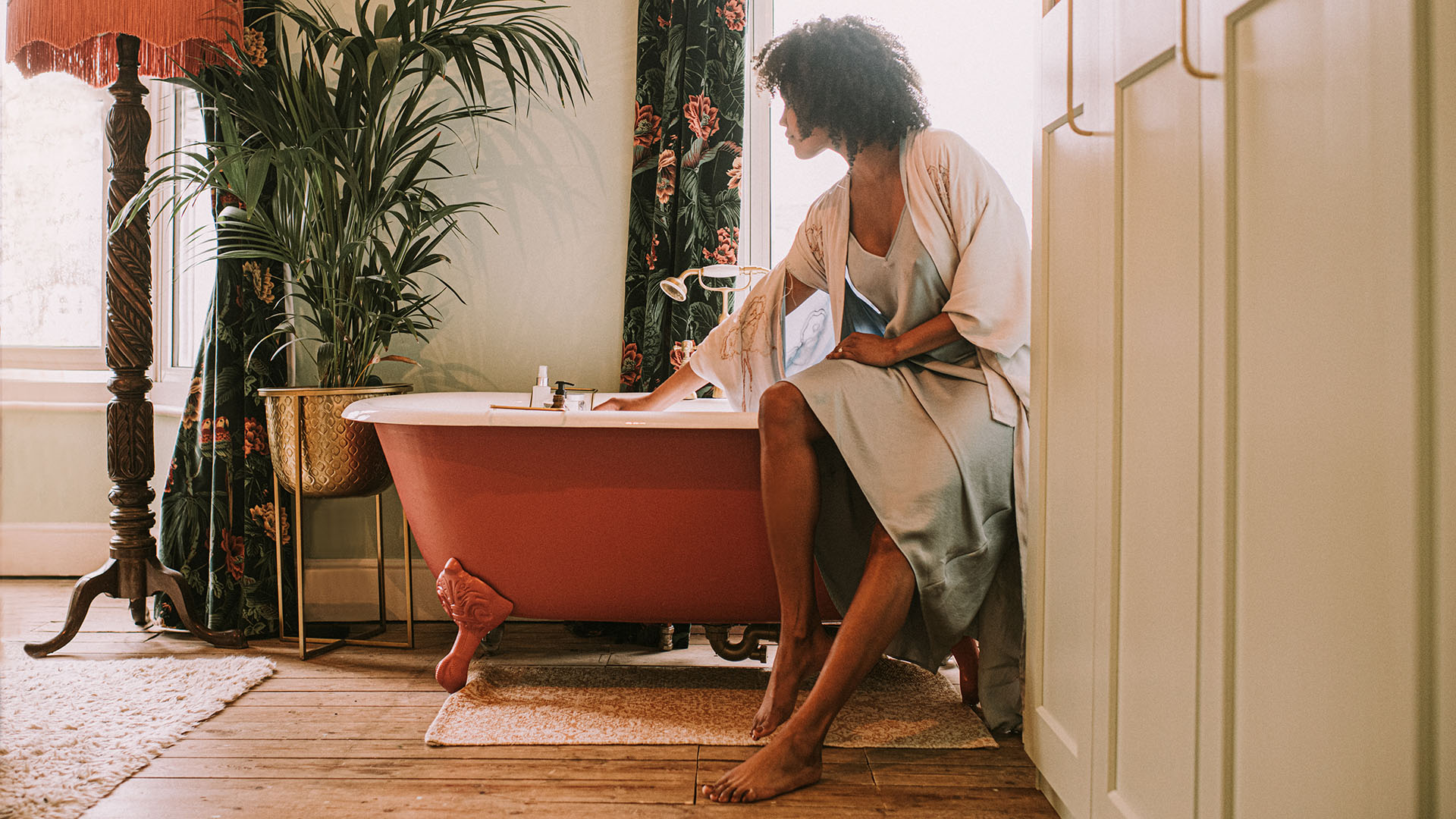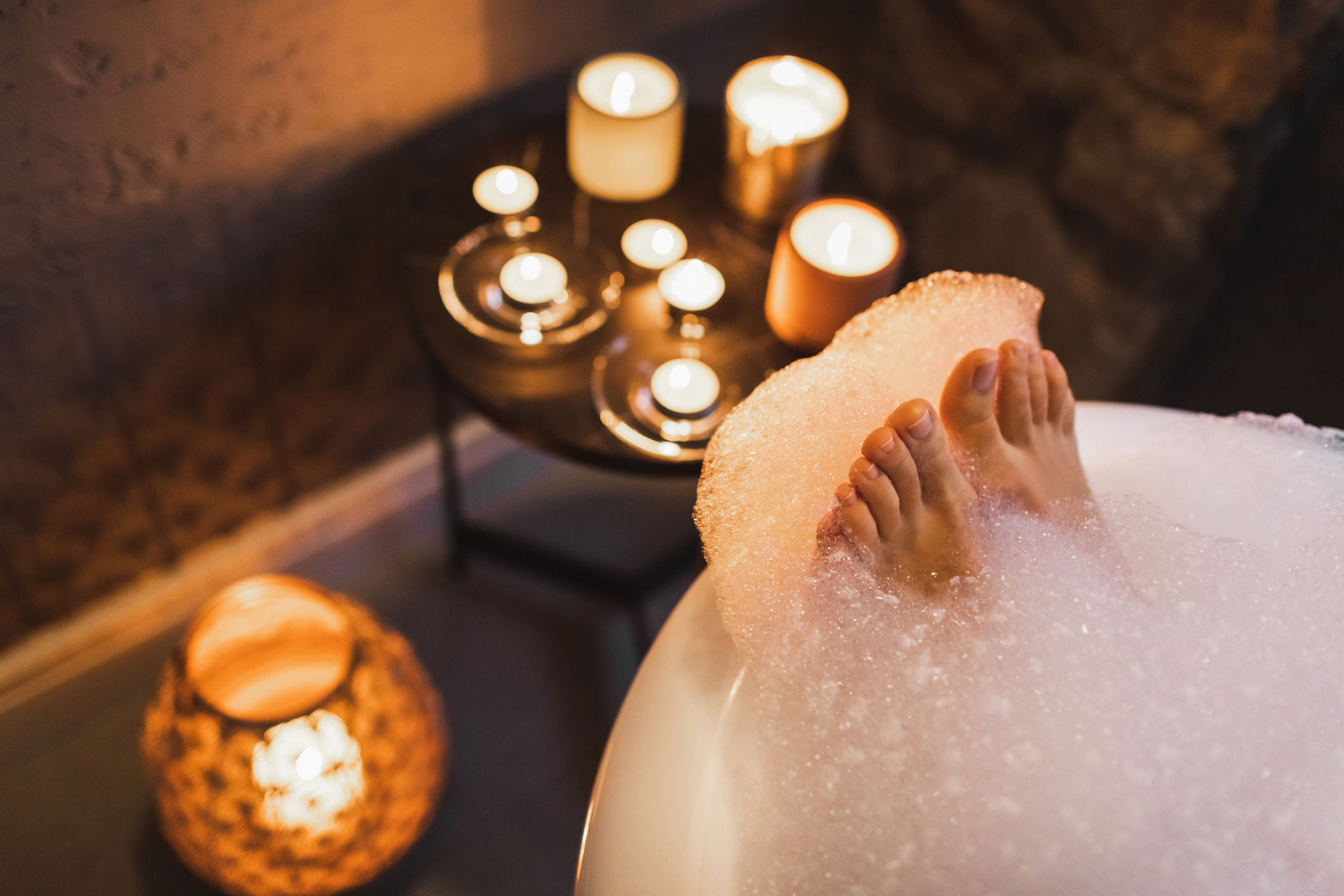Cold shower vs warm bath: Which is best for sleep?
Does having a warm bath or a cold shower before bed help you fall asleep faster and easier? We find out...

Nothing beats relaxing in warm bath before climbing into bed at night (bonus comfort points for snuggling up one of 2023's best mattresses). Not only does a warm bath soothe tired and achy muscles, it can also help slow your breathing, relaxing your body and preparing it for sleep.
However, the virtues of cold showers (or ice baths) have risen in popularity in recent years, with cold-water advocates like Wim Hof spearheading the movement. Anecdotal evidence suggests that cold showers can also promote better sleep, thanks to the immediate warming our body undergoes after getting out of a cold shower. Your core temperature will still be low, signalling to your body that it’s time for sleep.
So, what's best for sleep: a warm bath or cold shower? Let’s find out...
- Rise and shine with the best iPhone alarms according to science
Why a warm bath helps you sleep better
As well as being a pleasant and relaxing experience, studies show that having a warm bath before bed can help promote better sleep. However, to glean the best benefits of a pre-bedtime bath, it’s important to get the temperature and the timing right.
A study by The University of Texas explored the relationship between water temperature and sleep. The study found that the optimum temperature of a pre-bedtime bath was between 104 and 109° F (40 to 43° C), while the optimum time was 90 minutes before your bedtime (but within a one to two hour window was still beneficial). Getting both the timing and the temperature right helped decrease the time it took to fall asleep by ten minutes.

The reasons for this are twofold. First of all, our body temperature drops by 0.5 and 1° F (0.3 to 0.6° C) around bedtime, so the temperature drop we experience after getting out of a warm bath mimics the temperature drop we experience before bed, helping to signal to our brains and bodies that it’s time for sleep. Secondly, a bath is relaxing, which helps slow our breathing and alleviate stress (which is a natural enemy of sleep), helping to ready us for rest.
Does taking a cold shower help you sleep?
A cold shower can also improve your sleep, but it depends largely on the time of day that you have one. A cold shower activates the sympathetic nervous system, which is responsible for your body’s get-up-and-go hormones, such as cortisol (the stress hormone) and adrenaline.
Sign up to get the BEST of Tom's Guide direct to your inbox.
Get instant access to breaking news, the hottest reviews, great deals and helpful tips.
When the sympathetic nervous system is stimulated, your heart rate quickens as your body prepares itself to get out of danger (if the hot water has ever cut out mid-shower, you will be familiar with this feeling).
However, the sympathetic nervous system also stimulates the production of norepinephrine, which is the hormone that triggers blood being redistributed throughout the body. This has an immediate warming effect on our bodies, helping to offset the rapid drop in our core temperature experienced during the shower.
In theory, an increase in body temperature works against the natural cooling down our bodies undergo in preparation for bed. Few scientific studies have explored the relationship between cold water and sleep, but those in the pro pre-bedtime cold shower camp argue that — despite the frantic warming up our body attempts after a cold shower — our core temperature remains low, helping signal to your body that it’s time for sleep.

However, with cortisol and adrenaline also still swimming around your body, you’re more likely to be ready for action than for sleep after taking a cold shower before bed. Instead, save your cold shower for first thing in the morning to establish a healthy sleep schedule.
Cold shower vs warm bath: which is best for sleep?
A warm bath before bed is scientifically proven to improve your sleep, while a lack of research into the relationship between cold showers at night and sleep quality means that the jury is still out on whether a cold shower before bed can improve your sleep. However, there’s still room for both cold showers and warm baths in your daily routine.
Cold showers kick-start the production of cortisol (which, in small doses, our body requires) and feel-good hormones, such as serotonin. Serotonin later becomes metabolised into melatonin, the sleep hormone that readies both brain and body for sleep. This means that starting your day (as opposed to ending it) with the occasional cold shower means that a healthy sleep-wake cycle can be established, which in turn improves your sleep quality.
As well as helping to establish a relaxing bedtime routine, a pre-bed bath can help you fall asleep faster — especially if you get both the temperature and the timing right.

Nicola is the Sleep Editor at Tom’s Guide, where she helps steer the mattress and sleep content published on Tom’s Guide, including our Best Mattress for Back Pain buying guide. With a career in journalism spanning the best part of two decades, Nicola brings experience to the team and the knowledge of what makes a great article, whether that’s a how-to mattress cleaning feature, a deep dive into melatonin gummies, or an in-depth mattress review. As a sleep editor, few better understand how important a decent mattress is to the overall quality of our sleep, and precisely how our sleep impacts our physical and mental health. As well as tackling the vast topic of sleep, Nicola joins the raft of expert mattress specialists at Tom’s Guide, who test and compare a wide range of mattresses in order to guide readers towards the very best options on the market.
